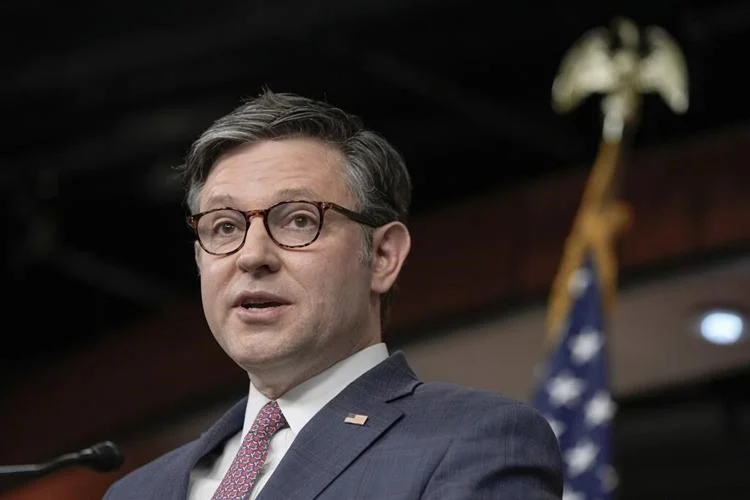
AP Photo/ Mariam Zuhaib
House Speaker Mike Johnson is engaged in negotiations with the White House as he navigates the challenging task of advancing wartime funding for Ukraine and Israel through the House, according to a top House Republican.
Republican Leader Steve Scalise revealed that Johnson has been in discussions with White House officials regarding a package that diverges from the Senate's proposed $95 billion foreign security package. This package would incorporate several Republican demands. The discussions come after Johnson delayed advancing aid for months, seeking an opportune time to introduce a package that will face significant political hurdles.
Scalise emphasized that no agreement has been reached yet, underscoring the necessity for agreement not only with the White House but also among House members.
Johnson, a representative from Louisiana, faces the challenge of navigating a deeply divided Republican conference regarding support for Ukraine. Additionally, he must contend with two potential presidential contenders with differing views on U.S. foreign policy. President Joe Biden has criticized Republicans for allegedly aiding Russian President Vladimir Putin by not supporting Ukraine, while former President Donald Trump advocates for a more isolationist stance.
Johnson is scheduled to meet with Trump at his Mar-a-Lago club in Florida, seeking the former president's support for the Ukraine funding or, at the very least, to prevent Trump from openly opposing the package. Senator Markwayne Mullin of Oklahoma revealed discussions between himself, Trump, and Johnson regarding advancing Ukraine aid. While it remains uncertain whether Trump will provide political support, Mullin hopes to gain his backing, particularly given Johnson's precarious position as House Speaker.
Representative Marjorie Taylor Greene, a Republican from Georgia, has threatened to challenge Johnson's speakership, arguing that advancing Ukraine funding would bolster her case for selecting a new speaker.
Johnson has been advocating for legislation that structures some of the Ukraine funding as loans, aims to access frozen Russian central bank assets, and includes other policy changes. He has also pressed for the Biden administration to lift a pause on approvals for Liquefied Natural Gas exports and has sought policy changes at the U.S.-Mexico border.
Republican Representative Don Bacon, a proponent of aiding Ukraine, stressed the importance of passing a bill that addresses the escalating situation in Kyiv. However, Johnson faces opposition from hardline House conservatives who are dissatisfied with his leadership, leading to an almost open rebellion. With a narrow and divided majority, Johnson has had to collaborate with Democrats to advance major legislation.
House Democratic Leader Hakeem Jeffries advocated for a vote on the Senate's national security package as the only viable path forward for the House. He suggested that Democrats would support Johnson in retaining the speakership if he did so. However, Democrats themselves may be divided on the vote, particularly concerning the provision of offensive weaponry to Israel amid its campaign in Gaza, which has resulted in numerous civilian casualties.
The Biden administration has warned Israeli Prime Minister Benjamin Netanyahu that future U.S. support depends on the implementation of measures to protect civilians and aid workers.
Senate Majority Leader Chuck Schumer urged the House to pass the Senate's aid package promptly to prevent Putin from achieving a victory in Europe.















